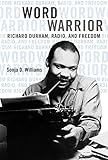Support H-Net | Buy Books Here | Help Support the NBN and NBN en Español on Patreon | Visit New Books Network en Español!
- African Studies
- African American Studies
- American Politics
- American Studies
- American South
- American West
- Asian American Studies
- Australian and New Zealand Studies
- British Studies
- Canadian Studies
- Caribbean Studies
- Central Asian Studies
- Chinese Studies
- East Asian Studies
- Eastern European Studies
- European Politics
- French Studies
- German Studies
- Iberian Studies
- India Studies
- Indian Ocean World
- Iranian Studies
- Irish Studies
- Israel Studies
- Italian Studies
- Japanese Studies
- Korean Studies
- Latino Studies
- Latin American Studies
- Mexican Studies
- Middle Eastern Studies
- Native American Studies
- Pacific Studies
- Polish Studies
- Russian and Eurasian Studies
- Southeast Asian Studies
- South Asian Studies
- Turkish Studies
- Ukrainian Studies
- Western European Studies
- World Affairs
- Animal Studies
- Anthropology
- Archaeology
- Business, Management, and Marketing
- Media
- Critical Theory
- Disability Studies
- Drugs, Addiction and Recovery
- Education
- Economics
- Finance
- Geography
- Gender Studies
- Genocide Studies
- Higher Education
- Human Rights
- Journalism
- Language
- Law
- LGBTQ+ Studies
- National Security
- Philanthropy
- Philosophy
- Policing, Incarceration, and Reform
- Political Science
- Politics & Polemics
- Public Policy
- Sex, Sexuality, and Sex Work
- Sociology
- Sound Studies
- Sports
- Urban Studies
- Big Ideas
- Celebration Studies
- Co-Authored
- Cover Story
- Historical Materialism
- History Ex Silo
- Interpretive Political and Social Science
- Invested Investor
- Landscape Architecture
- Late Antiquity
- Mormonism
- NBN Book of the Day
- NBN Seminar
- Postscript: Conversations on Politics and Political Science
- Practical History
- Preparing for Life After Grad School
- Psychology and Climate Change
- Syriac Studies
- The Chair: In The Room at the Fed
- New Books with Miranda Melcher

Jun 15, 2016
Racial Reconstruction
Black Inclusion, Chinese Exclusion, and the Fictions of Citizenship
Summary
The dialectical configuration of black inclusion/Chinese exclusion is at the center of Edlie Wong's book Racial Reconstruction: Black Inclusion, Chinese Exclusion, and the Fictions of Citizenship (New York University Press, 2015). At the end of the 19th century, the southern United States was experimenting with a transition from a dependency on uncompensated, coerced labor in the form of black chattel slavery, to a system of (nominally) voluntary, wage labor i.e. Chinese contract labor (coolieism), modeled most prominently in nearby colonial Cuba. Wong poses the important question of whether coolieism constituted a form of slavery or was indeed, a transition to free labor. In so doing, Racial Reconstruction explores the implications of mutually constitutive African American and Chinese American racialized identity formations, the Chinese Question, and the Negro Problem being coterminous: Chinese exclusion--the exception that proved the rule--helped America define itself as a free nation in the wake of racial slavery. Wong's use of unusual documentary sources such as the underexamined archive of Anglo-American Cuban travelogues and invasion fiction by both African and European Americans, limns the changing racial landscape of Reconstruction-era immigration policies and conceptions of citizenship that shaped Asian-American cultural politics and impacted African American life.
NB: Professor Wong's next project, mentioned toward the end of the interview, concerns apprenticeship and not indenture as indicated.
Mireille Djenno is the Librarian for African, African American and Diaspora Studies at the University of North Carolina at Chapel Hill.
Mireille Djenno is the Librarian for African, African American and Diaspora Studies at the University of North Carolina at Chapel Hill.





































































































